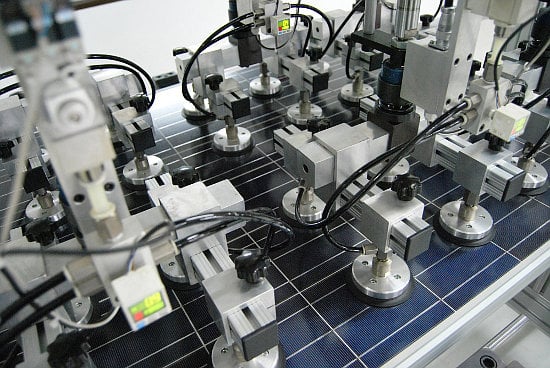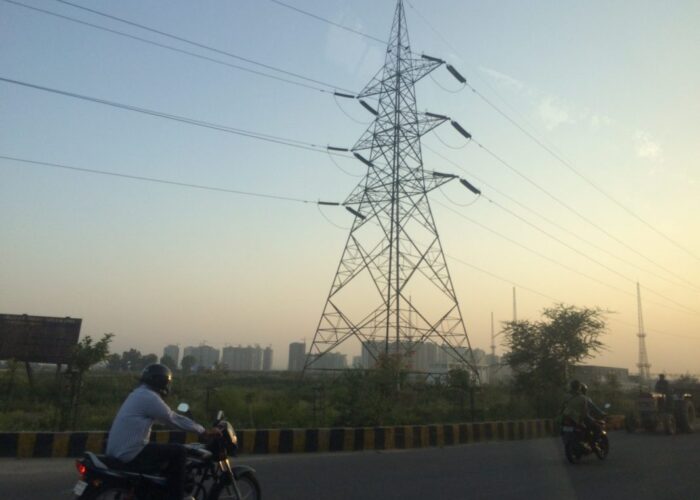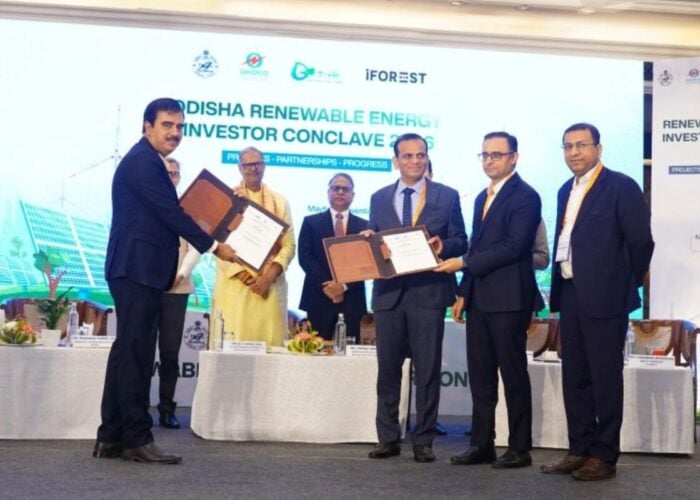
India’s expanded Production Linked Incentive (PLI) scheme has changed its rules and future rounds will now be open to previous winners, although total capacities will be capped at 10GW. The local content requirement for manufacturer of 90% remains.
At the start of last month, the Indian government quadrupled the amount of funding for its PLI scheme by making a further Rs19,500 crore (US$2.6 billion) available.
Try Premium for just $1
- Full premium access for the first month at only $1
- Converts to an annual rate after 30 days unless cancelled
- Cancel anytime during the trial period
Premium Benefits
- Expert industry analysis and interviews
- Digital access to PV Tech Power journal
- Exclusive event discounts
Or get the full Premium subscription right away
Or continue reading this article for free
The PLI scheme was implemented in April last year by the Ministry of New and Renewable Energy and aimed to incentivise companies setting up integrated, higher capacity, high efficiency solar module plants in India.
Back then, a Request for Proposals (RfP) for 10GW of high efficiency solar module and cell manufacturing capacity received 54.8GW of bids from 18 different companies. Bids were capped at 4GW.
The winners were Reliance New Energy Solar, Adani Infrastructure and Shirdi Sai. Runners up were told they would be included in the next round or chosen automatically if more funding was made available, with the winners of the initial round unable to take part.
Now, it has been reported that those original winners will be allowed to participate in the next, expanded round of PLI bids. Their bid, however, will be capped at 10GW, inclusive of capacity awarded during the first round.
Indian officials are expecting stiff competition and more aggressive bids for the upcoming round, according to Business Standard. It quoted an Indian official as saying: “As the government received an excited response in the first round, it is expected that competition will be tight in this round too.”
Jyoti Gulia, founder of JMK Research and Analytics, said the extra funding and rules change was because the Indian central government wanted to give opportunities to a larger set of players who are exploring market entry or whether to scale up in the sector.
“Multiple players lead to competition and less monopoly and hence competitive market driven module prices,” she said.
Vinay Rustagi, managing director of research firm Bridge to India (BTI), however, said the new rules “run counter to the original scheme” in that expanding the capacity the original winners can bid for means less competition, even if it is desirable from a scale and cost perspective.
“It now appears that top 3-4 bidders may garner the entire US$3.2 billion PLI budget, which would be highly controversial,” said Rustagi, adding that it could potentially lead to legal disputes due to the change from the original scheme.
Extra PLI funding was announced as part of India’s recent budget, which was described as a “game-changer” for solar manufacturing in the country.
The scheme is expected to add up to 40GW of additional cell and module manufacturing capacity in the country, according to Indian rating agency ICRA, a Moody’s Investors Service company.






